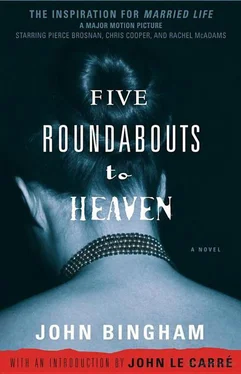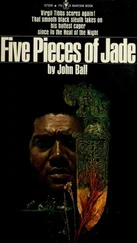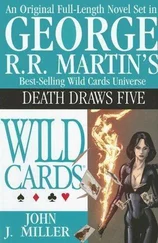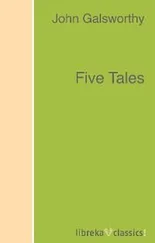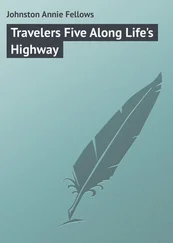John Bingham - Five Roundabouts to Heaven
Здесь есть возможность читать онлайн «John Bingham - Five Roundabouts to Heaven» весь текст электронной книги совершенно бесплатно (целиком полную версию без сокращений). В некоторых случаях можно слушать аудио, скачать через торрент в формате fb2 и присутствует краткое содержание. Жанр: Криминальный детектив, на английском языке. Описание произведения, (предисловие) а так же отзывы посетителей доступны на портале библиотеки ЛибКат.
- Название:Five Roundabouts to Heaven
- Автор:
- Жанр:
- Год:неизвестен
- ISBN:нет данных
- Рейтинг книги:4 / 5. Голосов: 1
-
Избранное:Добавить в избранное
- Отзывы:
-
Ваша оценка:
- 80
- 1
- 2
- 3
- 4
- 5
Five Roundabouts to Heaven: краткое содержание, описание и аннотация
Предлагаем к чтению аннотацию, описание, краткое содержание или предисловие (зависит от того, что написал сам автор книги «Five Roundabouts to Heaven»). Если вы не нашли необходимую информацию о книге — напишите в комментариях, мы постараемся отыскать её.
Five Roundabouts to Heaven — читать онлайн бесплатно полную книгу (весь текст) целиком
Ниже представлен текст книги, разбитый по страницам. Система сохранения места последней прочитанной страницы, позволяет с удобством читать онлайн бесплатно книгу «Five Roundabouts to Heaven», без необходимости каждый раз заново искать на чём Вы остановились. Поставьте закладку, и сможете в любой момент перейти на страницу, на которой закончили чтение.
Интервал:
Закладка:
The light went on in her bedroom.
He waited for half a minute, wondering whether she would open the window; holding his cigarette ready to wave to her, as he had always done in the past.
But the window remained shut. A sob of self-pity rose in his throat.
He drove along the lane as fast as possible in third gear, to warm up the engine, swung into the main road, and changed into top.
Where the road filtered into the main London-Guildford road he slowed down, dropped into Cobham, drove along the winding road through Cobham, and then accelerated up to fifty.
The snow still lay on the grass verges and partly cloaked the hedges, but the continual traffic had mostly cleared the road itself. He drove with the car astride one of the lanes of catseyes, and the long lines of little reflector studs, looming up endlessly out of the darkness ahead, threw back the light of his headlamps so that he had the impression of a continuous stream of tracer bullets entering the body of the car, entering his own body and causing the pain which dragged interminably at his inside.
There was not a great deal of traffic about. The night air and the temperature, still below freezing point, had kept most people indoors. But now and again he passed a car, and occasionally a coach, the windows misted up, the interior alight and suggestive of warmth and human company. Bartels, in the dark interior of his car, alone with his fear, thought again of the letters he had written.
“Never put anything on paper, old boy,” that’s what they had said, the knowing ones in the Army; the ones who boasted of their conquests, in the Mess; the love-spivs, and fly Casanovas, the speculators in fornication, and the gamblers in the dicey game of adultery. “Tell ’em what you like, but don’t put it on paper, old boy…no letters, old boy, no letters…women always keep ’em…fatal.” The damnable thing was that they were right, and he had been wrong.
A good opportunity to do it. To do what? Murder, of course, that’s what any jury would say. That which we both know has to be done. What? Murder, obviously: he and Lorna in the dock, Lorna looking at the judge, unafraid. Blue-grey eyes and firm chin. Un-afraid, because she believed in British justice.
No innocent person is ever hanged in England, people said.
Better that a hundred guilty persons should escape than that one innocent person be punished unjustly. That’s what people said.
Justice, British justice, world renowned, and a jury, doing its best, but swayed by the instincts and prejudices inherited over the centuries: respectable men and women trying to rid their minds of the knowledge that Lorna was the third point in the eternal triangle.
What chance had “the other woman” on a murder charge before ten respectable men and two respectable housewives?
Before he found the answer, he saw the dark car as it slid past him, and took no notice of it, but pulled further in to the side of the road to let it go by. He always kept an eye on his driving mirror, and he had seen no car behind him.
It must have been following him without sidelights, or else it must have swooped upon him out of a side road where it had been lurking.
The bell throbbed loud and clear as the dark car passed, and speeded up, and then drew in to the side of the road some yards ahead. Now he saw the POLICE sign, illuminated above the roof, and a hand waving him to slow down and stop.
So soon, Beatrice dead so soon.
But it wasn’t fair. They shouldn’t have known he was on this road. Even if they had found her, and had found the number of his car, they shouldn’t have known he was on this road. They shouldn’t have been able to diagnose the cause of death so soon.
A question leaped at him out of the darkness, suddenly and without warning. What proof was there that Beatrice, a human being, would react to the drug in the same way as the dog Brutus? He gripped the steering wheel to fight down his fears.
Subsidiary questions crowded in upon him. Supposing the book on poisons had been wrong? Supposing she had managed to reach the phone before she lost consciousness? People react differently to drugs.
Supposing she had had her moment of fear after all, her seconds of terror; like the attack of palpitations, only ten times worse, and in her panic had called out his name: “Barty!” Perhaps she had called a second time, instinctively, even though aware that he was not there: “Barty! I feel so queer, Barty!”
Calling to him for help, calling to her murderer, in implicit faith, and staggering to dial 999, and dying in fear and pain after all, like the butterfly in the flames.
His heart throbbed in his throat. He had an absurd urge to ignore the signal, to sweep past the police, and on for a few yards, and then make a wild break across the fields.
But he pulled up behind the police car, and lowered the window by the driving seat, and sat waiting while a wave of nausea swept over him. Two officers got out of the police car and walked towards him. One stood in front of the car, and wrote down his registration number in a book. The other came up to the car, and bent down and put his face through the window.
“Are you aware that you have no rear light, sir?”
“No rear light?” whispered Bartels. “No rear light?”
“No, sir. Perhaps you would care to get out and confirm what I have said?”
They want to see if I’m sober, thought Bartels, they want to see me walk to the rear of the car, and see whether I walk properly. Perhaps he smelt the whisky on my breath. I must be careful not to slip on the icy road as I get out; slip and fall to the ground; I must be careful not to slip as I walk to the rear of the car; I must walk carefully, but not too carefully; I mustn’t hold on to the side of the car, even though I might normally do so on a road like this. That would look bad. If they take me in charge, it is the end. And I must not enunciate my words too carefully when I talk to them. That would be bad, too. Mustn’t speak too carefully, and mustn’t speak thickly. If I’m arrested, Beatrice will die, be consumed in the flames as the butterfly was burned in the grate.
Bartels opened the door and got out. He walked slowly but steadily to the rear of the car.
The police officer pointed. “See, sir? No light.”
Bartels gave the light a bang with his hand, and the bulb lit up.
“That’s better,” said the police officer.
“Bad connection,” said Bartels, and smiled.
“You were, of course, committing an offence, sir; you realize that?”
Bartels nodded. “I suppose so.”
“Have you your driving licence with you, sir?”
“You’re not going to report me for this, surely?”
“Have you your driving licence with you, sir?” the officer said again.
“Yes.”
Bartels felt in his pocket and took out the licence. The officer examined it, slowly and methodically, and entered some particulars in a notebook.
Oh, God, prayed Bartels, make him get a move on, make him hurry up: the minutes are passing. Oh, God, if You exist, make this man hurry.
The police officer handed back the licence. Bartels turned to get into his car again. The police officer said:
“Have you your certificate of insurance with you, sir?”
“I have, I assure you. And it’s in order. Must you see it? I am in rather a hurry.”
In rather a hurry, that was bad. He shouldn’t have said that. That was the sort of thing which is remembered. And on the night in question, members of the jury, he was seen to be in a distressed and agitated condition, both by the bartender of the hotel in Cobham, and by a police patrol who chanced to stop him. Bad, bad.
He heard the officer say: “May I see it, sir?”
He took out his wallet and extracted the certificate of insurance. The man examined it and handed it back.
Читать дальшеИнтервал:
Закладка:
Похожие книги на «Five Roundabouts to Heaven»
Представляем Вашему вниманию похожие книги на «Five Roundabouts to Heaven» списком для выбора. Мы отобрали схожую по названию и смыслу литературу в надежде предоставить читателям больше вариантов отыскать новые, интересные, ещё непрочитанные произведения.
Обсуждение, отзывы о книге «Five Roundabouts to Heaven» и просто собственные мнения читателей. Оставьте ваши комментарии, напишите, что Вы думаете о произведении, его смысле или главных героях. Укажите что конкретно понравилось, а что нет, и почему Вы так считаете.
